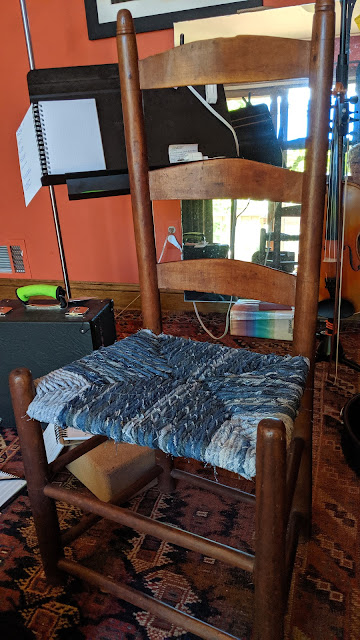Stiffness and Aging
In the course of my work I had occasion to interview a prominent cardiologist. He had developed a theory about reversing the aging process, based on the overall idea that as we grow older, we become more stiff. I got very interested, thinking that physicians might be pursuing something that I see on a daily basis. It turned out that he was talking exclusively about what he called "stiffness" at a cellular level: the walls of the arteries becoming less flexible, and how this leads to higher blood pressure, etc. (I had to remind myself, he's a cardiologist, that would be his focus...)
This cardiologist was correct, of course: as we grow older we become more stiff in obvious, and some less obvious, ways. But what's great is, we don't need to focus on medical intervention to reverse the aging process.
My mom, for example, finds it appalling that people her age (82) and even younger tell her they don't really know anything about computers, saying, "Oh, it's too complicated for me, I'm too old to learn that!" She's right when she says that most often it's not because you can't learn things when you're old, (after all, she figured it out!) but that as we get older we are often less willing to learn new things. If your 10-year-old grandson figured it out, it's probably not difficult or complicated. Just new to you.
It's pretty normal, in fact inevitable, that we will become more "stiff" as we get older. The question is, what are you doing to counteract that stiffness? Because if you're doing nothing, you're going to get old much faster!
On the other hand, if your daily life involves a practice that helps you stay flexible in both mind and body, it can help you stay "younger" for longer.
This cardiologist was correct, of course: as we grow older we become more stiff in obvious, and some less obvious, ways. But what's great is, we don't need to focus on medical intervention to reverse the aging process.
My mom, for example, finds it appalling that people her age (82) and even younger tell her they don't really know anything about computers, saying, "Oh, it's too complicated for me, I'm too old to learn that!" She's right when she says that most often it's not because you can't learn things when you're old, (after all, she figured it out!) but that as we get older we are often less willing to learn new things. If your 10-year-old grandson figured it out, it's probably not difficult or complicated. Just new to you.
It's pretty normal, in fact inevitable, that we will become more "stiff" as we get older. The question is, what are you doing to counteract that stiffness? Because if you're doing nothing, you're going to get old much faster!
On the other hand, if your daily life involves a practice that helps you stay flexible in both mind and body, it can help you stay "younger" for longer.




Comments
Post a Comment